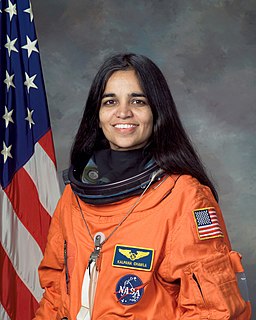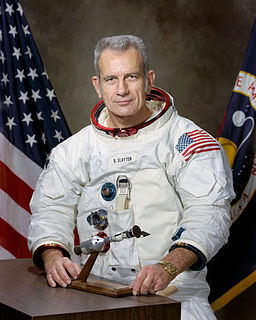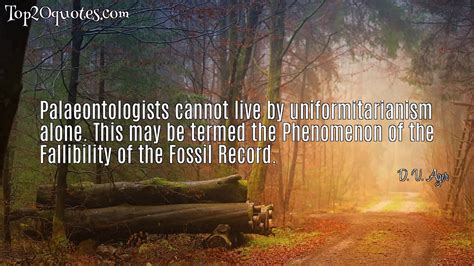A Quote by Kalpana Chawla
When you look at the stars and the galaxy, you feel that you are not just from any particular piece of land, but from the solar system.
Related Quotes
While the Copernican principle comes with no guarantees that it will forever guide us to cosmic truths, it's worked quite well so far: not only is Earth not in the center of the solar system, but the solar system is not in the center of the Milky Way galaxy, the Milky Way galaxy is not in the center of the universe, and it may come to pass that our universe is just one of many that comprise a multiverse. And in case you're one of those people who thinks that the edge may be a special place, we are not at the edge of anything either.
I feel that I'm in on the ground floor of something that human beings will be concentrating on for the next 1,000 years-if we don't destroy ourselves in the meantime. It's possible that 50 years from now we're going to end up out of this solar system, batting around the universe, at least within our galaxy, investigating other stars and other systems.
When I grew up as a kid, we didn't know there were any other planets outside of our own solar system. It was widely speculated that planet formation was an incredibly rare event and that it's possible that other planets just don't exist in our galaxy, and it's just this special situation where we happen to have planets around our sun.
we look up and we hope the stars look down, we pray that there may be stars for us to follow, stars moving across the heavens and leading us to our destiny, but it's only our vanity. We look at the galaxy and fall in love, but the universe cares less about us than we do about it, and the stars stay in their courses however much we may wish upon them to do otherwise. It's true that if you watch the sky-wheel turn for a while you'll see a meteor fall, flame and die. That's not a star worth following; it's just an unlucky rock. Our fates are here on earth. There are no guiding stars.
But, as Douglas E Harding has pointed out, we tend to think of this planet as a life-infested rock, which is as absurd as thinking of the human body as a cell infested skeleton. Surely all forms of life, including man, must be understood as "symptoms" of the earth, the solar system, and the galaxy in which case we cannot escape the conclusion that the galaxy is intelligent.
Kid says to me, "You play baseball? What position? Left out?" and gets a big laugh from the rest of the class. Kid is only one person out of 6.792 billion humans on this planet. This planet is only one-eighth of the solar system, whose sun is one of two billion stars in the Milky Way galaxy. Put it that way, the comment loses it's importance.
































